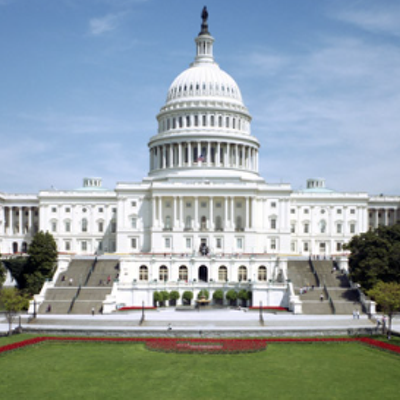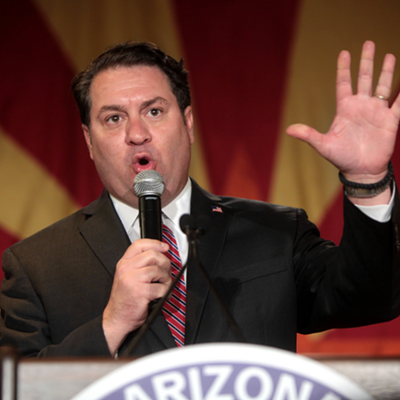Lost Guide
Can the city of Tucson get anything right these days?
Tucson voters learned last week that the city of Tucson somehow managed to neglect to send out a voter-information pamphlet before early ballots started landing in mailboxes.
City staff blamed it on a mix up with the printer and city of Tucson spokeswoman Lane Mandle said that city officials "sincerely apologize for the inconvenience this has caused our voters."
This is just inexcusably sloppy work that does little to help the city's reputation as an incompetent bureaucracy that can't get anything right—as exemplified by the recent bus strike, the weird glitches with new city transit cards that keep reading as if they don't have any credit on them (as examined by columnist Tim Steller in last Sunday's edition of the morning daily), the recent dismissal of a bunch of traffic tickets due to lack of prosecutorial manpower, and any number of other recent screw-ups.
These FUBAR moments are tailor-made for the Republican challengers, whose campaigns are built around the idea that it's time for change in leadership at City Hall. But with Election Day less than two weeks away, the GOP candidates continue to struggle to find the resources to let voters know they are in the race. The most attention in recent weeks has gone to former state lawmaker Frank Antenori and his fellow traveler Christine Bauserman, who have spent about $50,000 on yard signs and robocalls in an attempt to knock down the incumbent Democrats. The downside of that—other than annoying people with robocalls—is that the Democrats are now making the race about beating Antenori, whose history as an outspoken and unapologetic hard-right conservative hasn't made him the most popular guy among liberal-leaning Tucson voters.
Meanwhile, only one of the Republican candidates has managed to file for matching campaign funds, which is a pretty basic test of campaign organization. Margaret Burkholder, who is challenging five-term incumbent Shirley Scott in Ward 4, applied for the matching funds on Thursday, Oct. 8. Since it can take up to two weeks to audit the application for funds, Burkholder still hadn't gotten approved as of our Tuesday deadline. But even if she does get matching funds, Burkholder has reported raising roughly $14,000, so that's all she's going to get to push her campaign in the final two weeks.
Neither Kelly Lawton, who is challenging Democratic incumbent Paul Cunningham, or Bill Hunt, who is taking on Democratic incumbent Regina Romero, had filed for the funding as of Monday, Oct. 19—and given that it takes two weeks to audit the funding requests, even if they did so this week, they also wouldn't see any funding until just before Election Day. (The deadline to file for matching funds is Monday, Oct. 26, so the sand is running through the proverbial hourglass.)
Rising Dough
McSally leads local congressional fundraising—again
Last week's deadline for congressional candidates to report their third-quarter fundraising hauls showed that, once again, Congresswoman Martha McSally once again dominated the dash for dollars.
McSally brought in more than $800,000 between July 1 and Sept. 30, and ended the quarter with more than $1.6 million in the bank.
McSally campaign manager Weston McKee said the McSally's message and her "robust mail efforts" has meant that she has an enormous donor base and not all of her contributors provide information about their employers, although Team McSally has made efforts to reach out to them.
"The law requires that campaigns ask donors to submit their employer and occupation information on any solicitation, which we do," McKee said via email. "If a donor chooses not to fill in this information, the FEC instructs campaigns to make another effort to get that information within 30 days, which we make in the form of a letter. We comply with FEC guidance to get as much information as possible, but at the end of the day, some donors simply chose not to provide it."
McKee added: "Despite being a freshman member, Martha remains one of the top five fundraiser's in the House. Any comparisons of her finances and reports should be made with other candidates and members with similar volume and experience."
That's way more than her potential Democratic challengers were able to scrape together. Former state lawmaker Matt Heinz raised roughly $200,000 since announcing he was getting into the race at the beginning of August. Heinz has been stingy about spending and still had $174,967 on hand. Democratic state lawmaker Victoria Steele, who also wants a shot at McSally, raised roughly $56,000 and had about $34,000 left on hand as of Sept. 30.
Heinz's haul would have been impressive a decade ago—but today, it's barely enough to ante up for a seat at the political poker game in CD2, one of the most competitive districts in the country. In the 2014 campaign, McSally spent more than $3 million on her way to defeating Democrat Ron Barber, who also spent more than $3 million.
In the wake of her narrow win over Barber, McSally never stopped with the fundraising. Her ability to bring in bucks is in a class by herself when it comes to Arizona members of Congress. She raises money so fast and across such a wide nationwide base that Team McSally can't even keep track of the basics of fundraising reporting, such as finding out who her donors work for. She's received more than a dozen letters from the FEC requesting that she fill in those blanks.
Elsewhere on the fundraising front: In the race for the open seat that Congresswoman Ann Kirkpatrick is surrendering so she can take on Sen. John McCain, there's a crowded GOP primary. But two of the candidates, Pinal County Sheriff Paul Babeu and Speaker of the Arizona House David Gowan got into the race just a few weeks ago, so they weren't required to file reports.
The other two Republicans showed their hand: Former secretary of state and state lawmaker Ken Bennett announced that he'd raised about $111,000 and roughly had $113,000on hand. Rancher/hotelier/rodeo cowboy Gary Kiehne, who made his political debut with an unsuccessful 2014 CD1 run, has raised $158,000 since the start of the year. Kiehne, who has relatively deep pockets, has lent his campaign roughly $478,000 and had about $580,000 in the bank as of the end of the reporting period.
Tom O'Halleran, who served as a Republican in the Arizona Legislature, but joined the Democratic team for a run in CD1, raised about $120,000 and had just under $109,000 left in the bank.
Zona Politics with Jim Nintzel airs Sunday morning at 8 a.m. on the CW Tucson, Channel 8 on Cox and Comcast and Channel 58 on DirecTV, Dish and broadcast. This week's guests are Tucson Hispanic Chamber of Commerce President and CEO Lea Marquez Peterson and attorney Jeff Rogers, the former chairman of the Pima County Democratic Party. The show also airs at 5 p.m. Sunday on KXCI, 91.3 FM.








